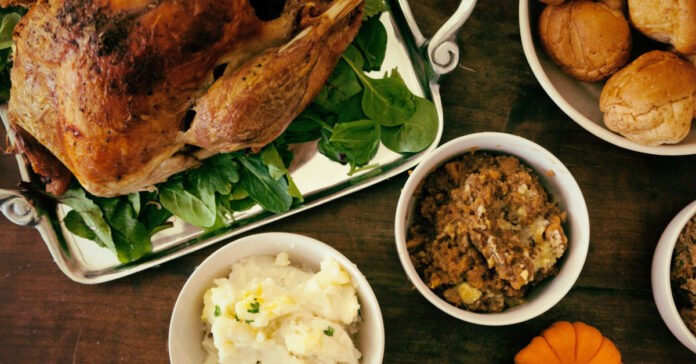I am thankful for many things in my life, and most especially for my wife, but this year, I am also thankful to be living in what is still predominantly a capitalist society in which hard work will still result in a better life more often than not.
Communism and socialism are the source of much hunger, death, and misery. I am thankful that socialism was largely knocked back down in the past election, even if Joe Biden captured the presidency.
Socialism Leads to Starvation
An oft untold story about the First Thanksgiving has a first-hand example about the problems with socialism.
When members of the Plymouth Colony, the original pilgrims, arrived in the New World, they planned to work together communally on shared land to raise food. William Bradford, the colony’s first governor, recorded in his diary that lands were not owned by individual buy in common by the community and any harvest was shared equally among the community, whether or not the beneficiaries contributed to its harvest.
Whether you call it socialism or communism, the idea of the community working to raise food may have sounded good, but it failed catastrophically, leading to starvation and death for about half the colony’s members.
Capitalism and Profit Encourages Work and Success
The pilgrim’s community farming program failed because even in a closely-knit religious community that wants to work together, there are hard workers and there are lazy people. Eventually, the hard workers resent expending so much effort to feed the slackers and they cease to exert their full efforts. The result is that less work gets done, fewer crops get raised, and everyone goes hungry.
After their failures in the first year, the governor assigned each family their own, private property on which they could work as much or as little as they wished, keeping the entire harvest for their own use or to trade or sell. Not surprisingly, production increased as those hard workers now worked for their own interests, their own family’s health, and the weight of their own purse. Harvests grew and the colony became self-supporting.
From its first beginnings, the colonies, later to become the United States, saw the value of capitalism, private property, and a return on assets outweighed the apparent “fairness” of communism and socialism. Collectives and communes never last long, and the Plymouth Colony would have died out in a year or two if they had remained under a socialist structure.
Thank the Free Market
As you settle down to eat your Thanksgiving turkey, you can be grateful to capitalism and the free market, which resulted in a turkey that likely cost less than $1 per pound. (In 2020, a frozen turkey purchased for Thanksgiving at major U.S. grocery chains could be had for somewhere between 49 and 99 cents per pound.)
Imagine the cost if you had to raise and butcher your own turkey. No doubt the feed alone would cost you more than you paid for the bird on your table this holiday. This low-cost food is the result of a long process, a social evolution driven largely by capitalism and the individual’s desire to better themselves and their situation.
Over several millennia, society evolved from hunters and gathers to nomadic tribes who traveled with livestock into an agrarian economy with farmers who stayed in one place. That quickly led to villages with markets at the center and vendors who provided services not available on the farm. This lead to specialization as cobblers made shoes, coopers made barrels, millers ground grain, and blacksmiths forged tools for everyone. No longer did the farmer have to take time from tending his crop to make a plowshare, tan his cowhides, or make his own barrels.
The Industrial Revolution Created Wealth
Advances in steam power lead to faster transportation, such as steam boats and locomotives, which increase competition and opened new markets for goods produced in factories. This lead to the industrial revolution and the transfer of excess sons from their fields of their fathers to the factory floors in the city. Eventually, the greater efficiencies of large-scale production gave rise to wealth, leisure time, and created the emergence of a consumer culture.
We can argue if we are truly better off ordering online and waiting for goods to show up at our door than we were when we were closer to nature, harvested our food by hand, and wove the cloth on our backs, but no one can argue that turkey for 89 cents per pound isn’t a damn good buy.
Any way you look at it, we’re better off as lazy capitalizes than starving socialists.
A special Thanksgiving thank you to our regular readers. We appreciate your patronage!
If you liked today’s post, you may also enjoy The Problems Socialism Brings and How to Survive Them.








